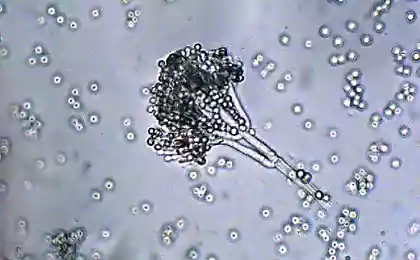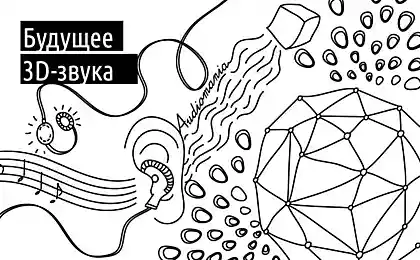807
Bio-computer music
An interesting experiment at the intersection of music, biology and engineering is carried out Interdisciplinary Centre for Computer Music Research at the University of Plymouth (ICCMR).
// player.vimeo.com/video/111409050 video>
Eduardo Miranda (composer and director ICCMR) and his team collected bio-computer-based forest slime mold Physarum polycephalum and developed an interface for its interaction piano.
The whole setup is a feedback system.
Bio-computer - is an analog circuit with bags of mold, which are connected to the wiring for the electrical stimulation of the body and to measure the response of micro in its tissues. On deck piano fixed electromagnets, which act as mediators and contactless pickups. Man playing the instrument, the output signals are converted to pickup impulses sent mold. Mould "listening" and "responsible", her response is interpreted by the system as a set of notes and converted back to current fluctuations for strings. So it turns out the accompaniment.
It is interesting to point that input pulses affect the health and growth of the organism, thus mold remembers previously heard music in his body, and its response in the future will depend on this memory.
Experimenters have developed software for the iPad, in which a person can choose the group of magnets that are available for use mucous accompanist. This limits his freedom of choice, but it does the overall sound more harmonious.
In fact, the response sound is produced by the same piano, but the sound production and far from the traditional and the avant-garde from.
Eduardo Miranda argues that the process of creating music through this system is completely new properties. This is probably true. It would be interesting to understand the bio-computer design in more detail in order to understand whether the scheme is not equivalent to the mold noise generator, passed through a soft-filter for the harmonization of sound, and whether the response Physarum polycephalum laws that allow call this answer accompaniment.
In addition, the ICCMR held many other interesting experiments, the results of which can be found on their website.
Source: geektimes.ru/post/247120/
// player.vimeo.com/video/111409050 video>
Eduardo Miranda (composer and director ICCMR) and his team collected bio-computer-based forest slime mold Physarum polycephalum and developed an interface for its interaction piano.
The whole setup is a feedback system.
Bio-computer - is an analog circuit with bags of mold, which are connected to the wiring for the electrical stimulation of the body and to measure the response of micro in its tissues. On deck piano fixed electromagnets, which act as mediators and contactless pickups. Man playing the instrument, the output signals are converted to pickup impulses sent mold. Mould "listening" and "responsible", her response is interpreted by the system as a set of notes and converted back to current fluctuations for strings. So it turns out the accompaniment.
It is interesting to point that input pulses affect the health and growth of the organism, thus mold remembers previously heard music in his body, and its response in the future will depend on this memory.
Experimenters have developed software for the iPad, in which a person can choose the group of magnets that are available for use mucous accompanist. This limits his freedom of choice, but it does the overall sound more harmonious.
In fact, the response sound is produced by the same piano, but the sound production and far from the traditional and the avant-garde from.
Eduardo Miranda argues that the process of creating music through this system is completely new properties. This is probably true. It would be interesting to understand the bio-computer design in more detail in order to understand whether the scheme is not equivalent to the mold noise generator, passed through a soft-filter for the harmonization of sound, and whether the response Physarum polycephalum laws that allow call this answer accompaniment.
In addition, the ICCMR held many other interesting experiments, the results of which can be found on their website.
Source: geektimes.ru/post/247120/
NASA astronauts will use augmented reality glasses in space
Print tabs on the 3D printer or our Kote against the Japanese MiMi






















